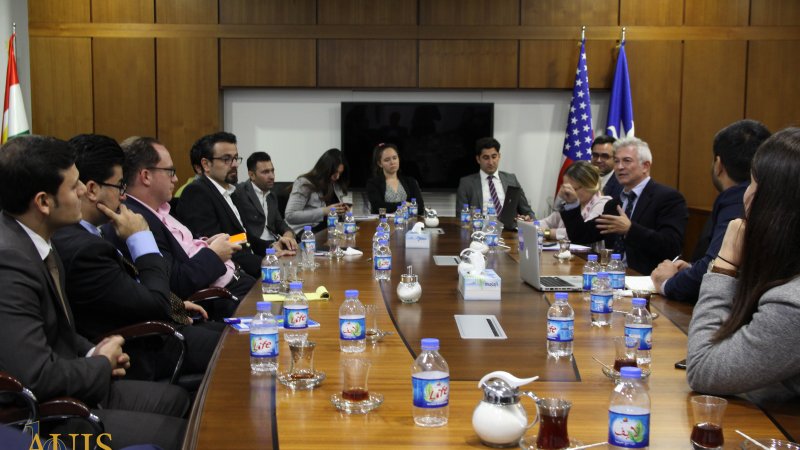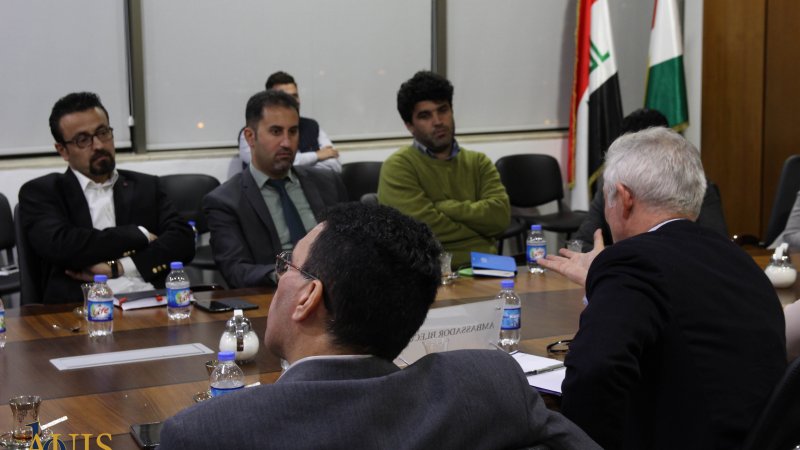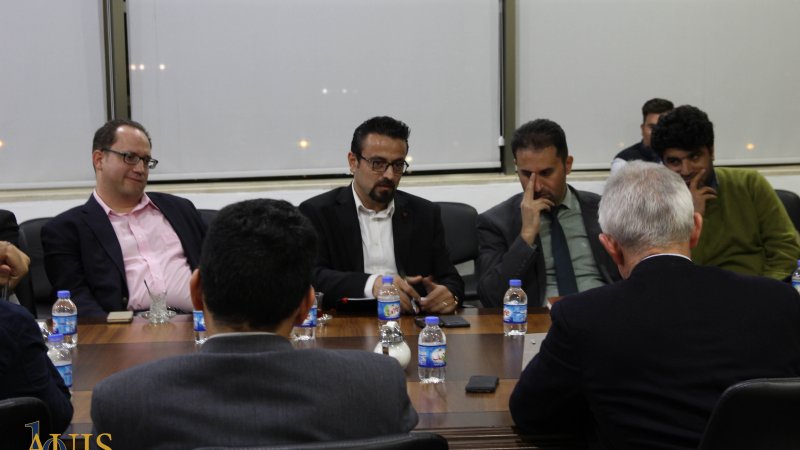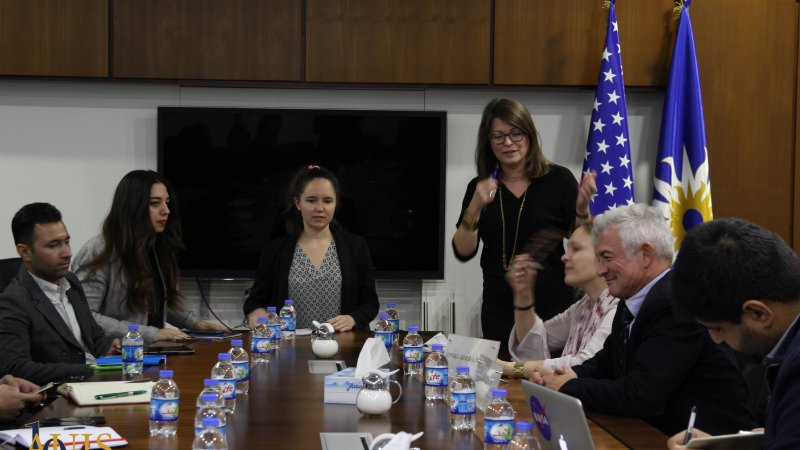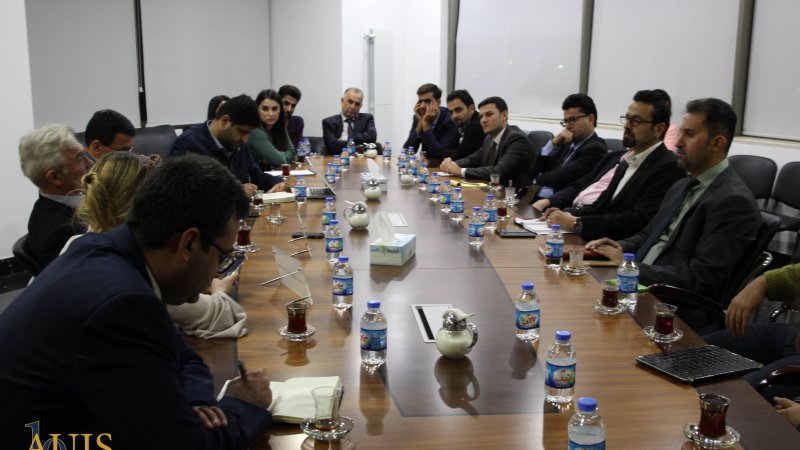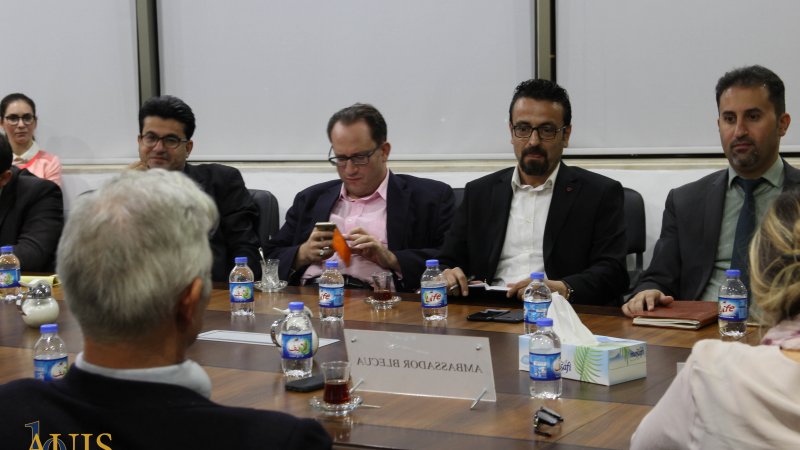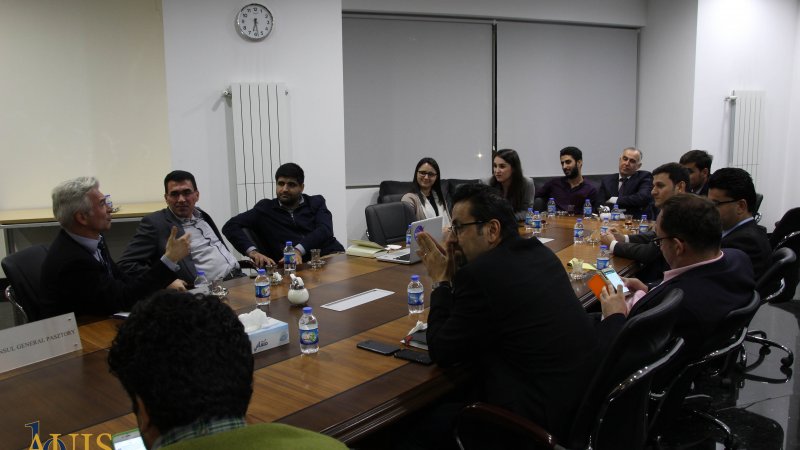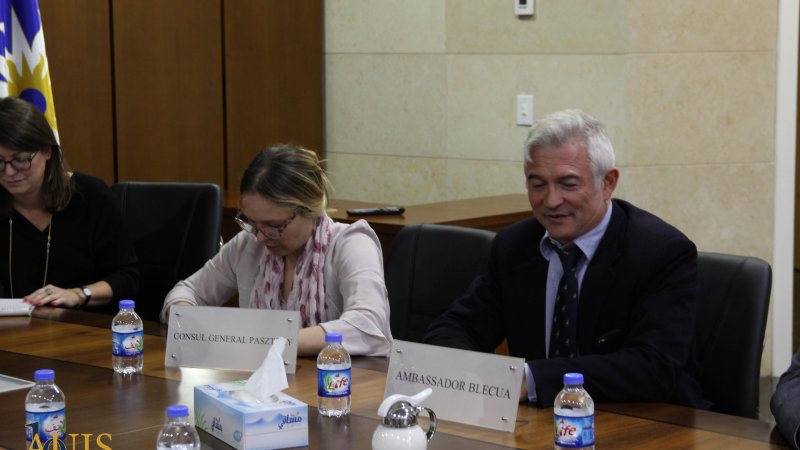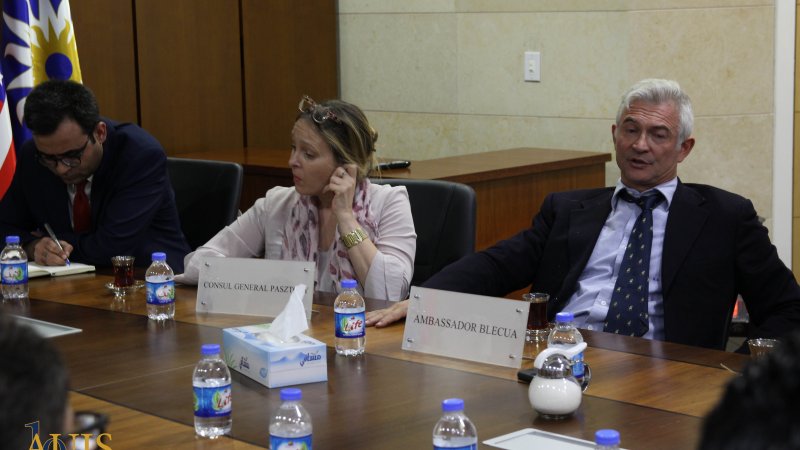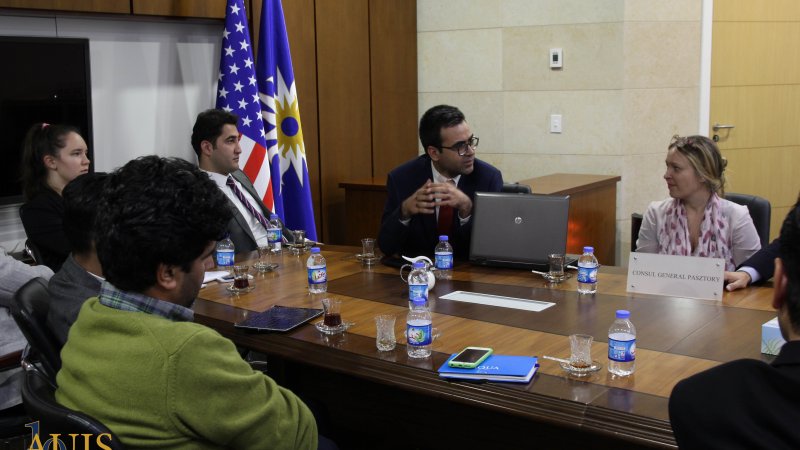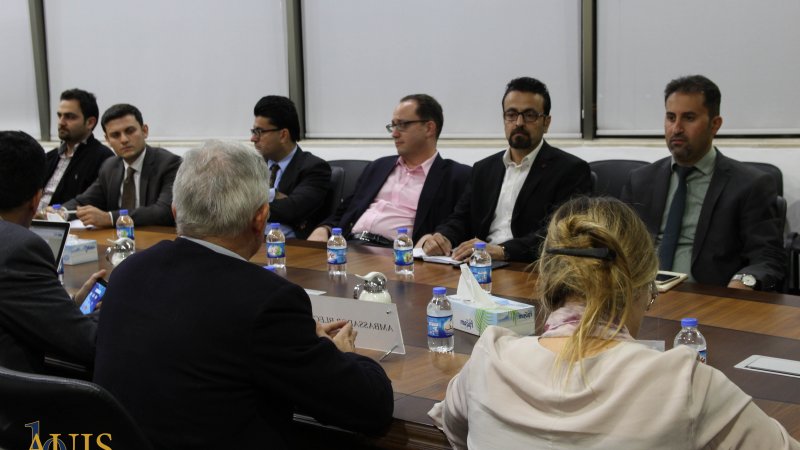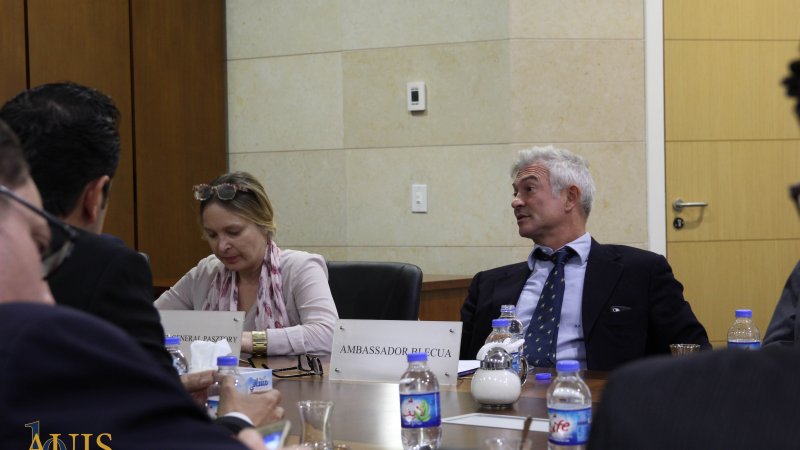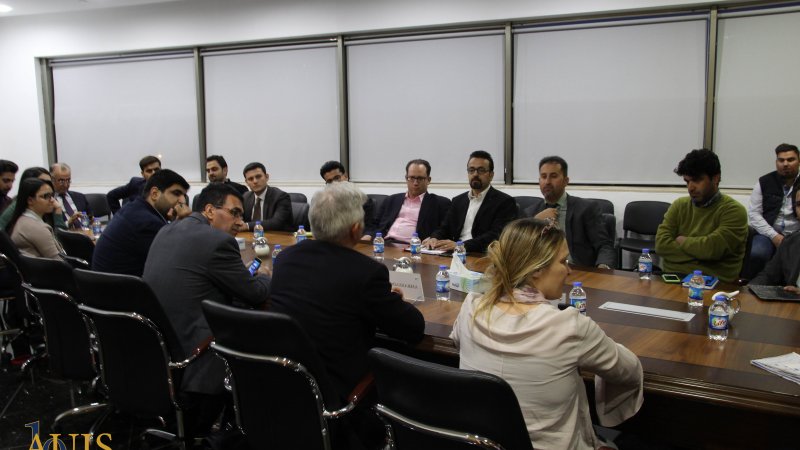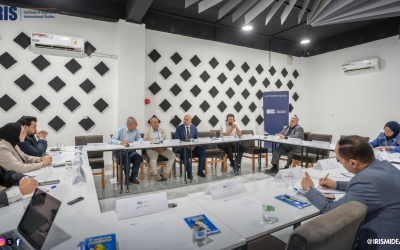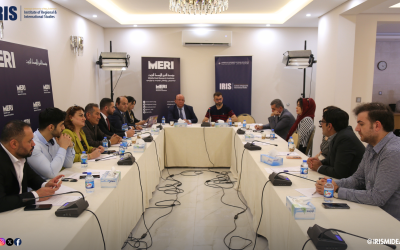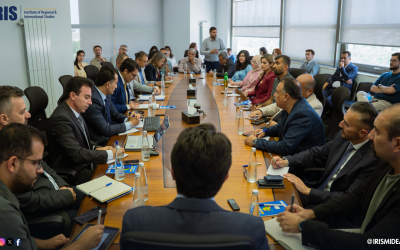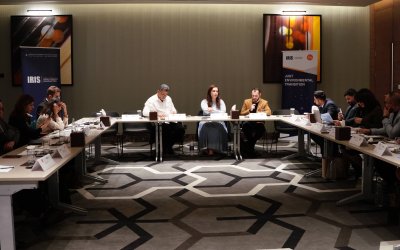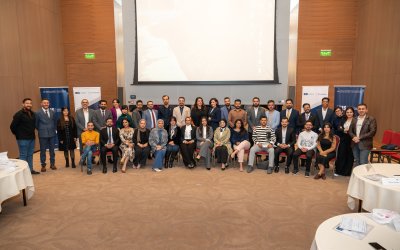On November 14, 2017, IRIS hosted the European Union (EU) Ambassador to Iraq, Ramon Blecua, and the Head of the EU Liaison Office in Erbil, Clarisse Pásztory, to speak about EU relations with the federal government of Iraq and the Kurdistan Regional Government (KRG), as well as perspectives on the referendum, post-ISIS strategy, and regional relations. Present were members the local press, political parties, political analysts, academics, and AUIS students and graduates. As the discussion was off the record, all statements made at the roundtable did not reflect the formal policies of the European Union.
The roundtable started with a discussion of KRG referendum on independence. Participants debated whether the concept of self-determination can be regulated according to a legal framework. The Iraqi constitution, for example, does not allow for a unilateral referendum – especially one held in the disputed territories – without prior negotiations. Participants also noted the importance of the development of political and economic institutions in the KRG. Alternatives to the referendum were also discussed: the federal government in Baghdad and the international community agreed to a negotiated resolution under the supervision of the United Nations. In the aftermath of the September 25 vote, the EU has nevertheless encouraged restraint and nonviolence through coordination with member states, Iraqi Kurdish and Iraqi leaders
The issues of regional interference and domestic reforms are important both for the KRG and the rest of Iraq, from Baghdad to Basra. It is crucial that Iraq not be an object of the regional ambitions of others and that regional actors such as Saudi Arabia, Iran, and Turkey recognize that Iraqi stability is in their interest. The issue of Iranian interference in particular, however, has been slightly overblown in domestic and international media outlets. While Iran is certainly active in other countries’ politics and regional affairs, the reality is often the simple alignment of Iranian and Iraqi interests rather than Iranian influence over Iraqi actors. It is important to keep in mind the existence of multiple competing elites, centers of power, and interests at play in the broader relationship between Iraq and Iran. Just as important as regional support for Iraqi stability are domestic initiatives. Notably, while there have been significant successes in the military campaign against ISIS, there now needs to be political and economic reforms at the domestic level.
The discussion involved an overview of EU engagement in Iraq, particularly the new phase of the Action Plan to commit $300 million over the next three years to support a wide range of projects, including those aimed at political and economic reform. In addition to this action plan, the Partnership and Cooperation Agreement, signed in 2012 and finalized in recent months, will hopefully be adopted as a formal EU document to facilitate programs focused on integration, immigration, investment, trade, and human rights.
As part of this increased engagement, the EU has chosen Iraq as one of its pilot countries for a stabilization and development program that aims to fill gaps in the country’s transition from a period of humanitarian assistance to one of stabilization and development. The EU recognizes that commitments and pledges do not necessarily mean implementation. Therefore, since the opening of its office in Erbil, the EU has begun supporting a number of initiatives, including the integration of humanitarian assistance with military planning. The EU was ready to implement the second stage of the program shortly before the Kurdish referendum, but was unable to move forward given the subsequent deadlock.

